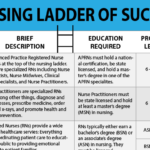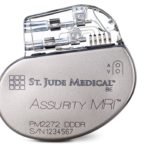The story of the AV Block family key: p wave = wife qrs = husband pacer = counseling Normal sinus rhythm: the wife (p wave) waits at home for the husband (qrs). the husband (qrs) come homes on time every night. 1st degree AV block: the wife (p wave) is waiting at home. the husband (qrs) comes home late every night, but he always comes home and its at the same time … [Read more...] about Four Types of AV-Block
The Nursing Ladder of Success – A Career Ladder for Nurses
Becoming a CNA is not only a good career, it’s also a great way to gain nursing experience and get your foot in the healthcare door. Many people start off as CNA’s and eventually become registered nurses, nurse practitioners, and sometimes even doctors. Take a look at the different levels of nursing and how each rung on the nursing ladder can get you greater responsibility and … [Read more...] about The Nursing Ladder of Success – A Career Ladder for Nurses
Grammar Nazi: Commonly Misused Words in Writing
Here Are Some Misused Words Or Mistakes That Less Careful Writers Often Make Or Get Confused With. Make Sure You Avoid Them. … [Read more...] about Grammar Nazi: Commonly Misused Words in Writing
Abbott’s tiny wireless pacemaker is now MRI-compatible
The FDA approved MRI-conditional labeling for Abbott’s tiny wireless pacemaker, making it the smallest and longest-lasting MRI-compatible device of its kind. The new labeling also applies to a pacing lead. The company picked up the Assurity MRI pacemaker and the Tendril MRI pacing lead in its acquisition of St. Jude Medical, which closed earlier this month. The pacemaker … [Read more...] about Abbott’s tiny wireless pacemaker is now MRI-compatible
Do You Know The Names Of These Surgical Instruments ? (3rd part)
Pick The right Option. … [Read more...] about Do You Know The Names Of These Surgical Instruments ? (3rd part)




